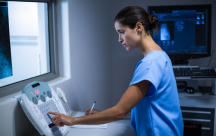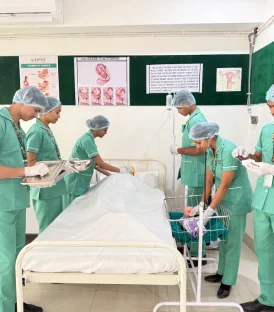February 15, 2022
Pleural fluid analysis is a test that examines a sample of fluid collected in the pleural space. Pleural fluid is a liquid located between the layers of the pleura. The pleura is a two-layer membrane that covers the lungs and lines the chest cavity. The pleural fluid keeps the pleura moist and reduces friction between the membranes when breathing. The area that contains pleural fluid is known as the pleural space. Generally, there is a small amount of pleural fluid in the pleural space. Sometimes too much fluid builds up in the pleural space. It is known as pleural effusion. Pleural effusion prevents the lungs from fully inflating and makes it hard to breathe. Pleural fluid analysis is a group of tests that look for the cause of pleural effusion. Pleural fluid analysis- is used to find the cause of the pleural effusion. There are two main types of pleural effusion:
1)Transudate- This happens when there is an imbalance of pressure in certain blood vessels. It causes extra fluid to leak into the pleural space. Transudate pleural effusion is most often caused by heart failure or cirrhosis.
2) Exudate- This happens when there is an injury or inflammation of the pleura. It can make excess fluid leak out of certain blood vessels. Exudate pleural effusion has many causes. These include infections- such as pneumonia, cancer, kidney disease, and autoimmune diseases. It commonly affects only one side of the chest.
Symptoms of pleural effusion. These include:
- Chest pain
- Dry, non-productive cough (a cough that doesn’t bring up mucus)
- Trouble breathing
- Fatigue
Some people with pleural effusion don’t have symptoms right away. But may order this test if anyone had a chest X-ray for another reason and it shows signs of pleural effusion.
A procedure called thoracentesis is used to get a sample of pleural fluid. The health care provider examines the sample to look for:
- Cancerous (malignant) cells
- Other types of cells (for example blood cells)
- Levels of glucose, protein and other chemicals
- Bacteria, fungi, viruses and other germs that can cause infections
- Inflammation
- No special preparation is needed before the test. An ultrasound, CT scan, or chest X-ray will be performed before and after the test.
- DO NOT cough, breathe deeply, or move during the test to avoid injury to the lung.
- Tell the provider if taken any medicines to thin the blood.

















